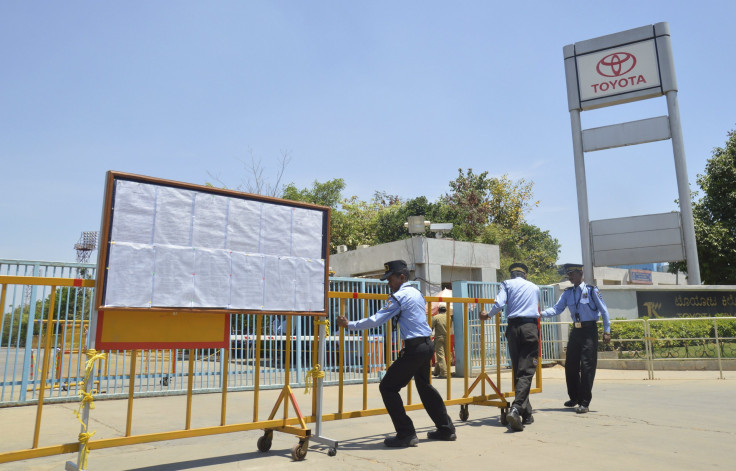Toyota Kirloskar's Standoff Continues Despite Company's Claims Of Employees Agreeing For Salary Hike

The labor-relations troubles for Toyota (TYO:7203) in India seem not to be over, despite a newly signed agreement between management and employees. Workers at Toyota Kirloskar, who have been on a strike since last month, have reportedly agreed to the pay rate that the company has offered them, company officials said in a press briefing Friday.
About 4,200 employees of Toyota’s India unit have been on a strike at the company’s Bidadi plant in the southern state of Karnataka, demanding a change in their pay scale and increasing it to 4000 rupees, where the company was willing to pay only 3,050 rupees. While the employees have come to an understanding of3,100 rupees as the accepted pay but are still at odds over a rollback on the suspension of a few employees by the company.
The employees began a hunger strike on Thursday and only 300 have resumed work, despite the company lifting the lockout on March 24.
“The union members did not notify us of the hunger strike. We came to know only by seeing the banners,” Shekhar Vishwanathan, vice chairman of Toyota Kirloskar said in a press briefing.
Toyota Kirloskar’s employees had also expressed doubts about signing a good-conduct undertaking, which remains unresolved. The company said Friday that nearly 300 employees have signed the contract and that the management is waiting for the others to sign it. The company has been keeping the labor department apprised of the latest developments.
“We have briefed them on every aspect of the evolving labor situation. They are also trying to find a way around this impasse. But no solution has as yet emerged,” Viswanathan said.
The company’s production has been reduced to half of its capacity due to the ongoing strike, from about 300 to 350 cars a day, down from the previous total capacity of 700 a day. The waiting period for its cars has increased to 45 days from the previously allotted 25 days.
“We have had 15 years of successful operations. Yes, we have had our share of industrial strikes, but we have been able to sit across the table and resolve the problem. This time it seems to be a bit intractable,” Vishwanathan said.
© Copyright IBTimes 2024. All rights reserved.












